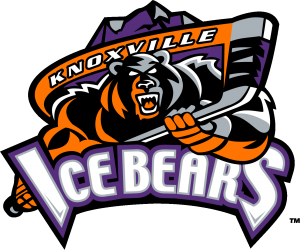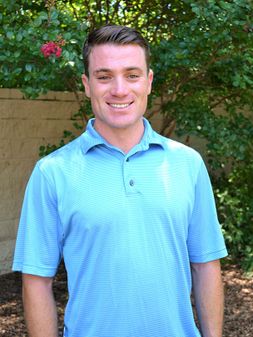Doctoral Candidate Shane Thomson Will Deliver a Series of Workshops Focusing on Improving Performance With the Knoxville Ice Bears Hockey Team
By Vanessa Slay, CEHHS Student Reporter, Class of 2023
“Just like when a coach teaches physical skills, we teach mental skills,” Shane Thomson, a PhD student in the Sport Psychology and Motor Behavior program at the University of Tennessee, Knoxville, shares. “When athletes are placed under an immense amount of pressure physically, what can we do to help them? Look at their mental skills. What are they doing to look after themselves so they can perform optimally?”
The Sport Psychology and Motor Behavior specialization encourages doctoral students to study various performance-enhancing skills and psychological factors that differentiate one high-intensity performer from another, whether on or off the field.
Thomson grew up as an athlete in the United Kingdom before earning his degree in Psychology. His experience made him wonder, “What makes one team win over the other?” At the highest levels of any sport, teams have been equipped with the best trainers, coaches, and nutritionists, yet what pushes one team over the top? Their mental game. That 1% edge can make or break the results of a game.
Through a unique partnership, Scott Barnicle, associate professor of practice in Sport Psychology, and Thomson believe they can bring that edge to the Knoxville Ice Bears.
 In late February, Thomson and Barnicle held a brief introductory workshop with the Ice Bears team, explaining the benefits that sport psychology could bring them. “Many of them were really open to this idea,” Thomson says, explaining the different types of skills the partnership would explore through a series of workshops and one-on-one sessions he will lead.
In late February, Thomson and Barnicle held a brief introductory workshop with the Ice Bears team, explaining the benefits that sport psychology could bring them. “Many of them were really open to this idea,” Thomson says, explaining the different types of skills the partnership would explore through a series of workshops and one-on-one sessions he will lead.
Barnicle notes that amongst the Ice Bears division, only a few have an opportunity to work with a sport psychologist.
Barnicle mentions that it is a “common misconception that helping someone with their psychological performance is the same thing as helping someone with mental health.” Instead, sport psychology focuses on developing skills such as but not limited to enhancing concentration, managing distractions, heart rate, and communication.
“People want to be coached, they want to improve,” Thomson relates, “what skills can we give you to manage the tough times and when you want to thrive.” The concept of managing tough times can be applied to various careers besides athletics.
Often sport psychologists are hired as business consultants to help manage employee performance in high-pressure fields. Before joining the academic community and coming to the University of Tennessee, Barnicle spent four years working for the United States Army in sports and exercise psychology.
Barnicle had also grown up as an athlete and worked as a collegiate coach. With completed degrees in Psychology and Counseling, he learned about Sport Psychology, a field that combined two of his passions. Barnicle says that he enjoys understanding why some people excel while others go through a slump and being able to train specific skills to help them get better.
Sport psychology understands that training your mind is as important as your physical. “You can work on your psychological skills just like you can work on your physical skills,” Barnicle explains. Many athletes struggle with the belief that thoughts such as “I always choke,” “my heart rate always goes up,” and “I always focus on what can go wrong” are set mentalities; however, those are all skills that are workable through sport psychology.

